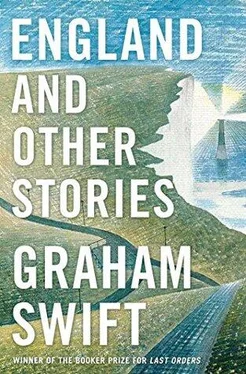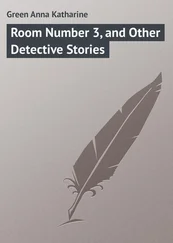And he was no different. How could he be different, even to himself? He was the same creature, with the same legs beneath him, the same mobile, thinking, breathing vessel that contained all he was.
He did get up. It wasn’t difficult. He didn’t totter. It was 4.25. He may have shaken Grant’s hand. He may have shaken Grant’s hand in a way he’d never shaken anyone’s hand before. He may have looked him in the eye and nodded obligingly in response to some further reassurance on his part about ‘what should happen next’.
But what should happen next was that he should put one foot in front of the other. That was the most important thing. One foot in front of the other. He walked, feeling the extraordinary exactness of his steps, to the desk in the waiting room. The nurse smiled at him. She couldn’t possibly know. It was an ordinary smile. But the fact that she’d smiled so simply must mean that his own face looked ordinary. So — Janice was not, quite, the first and he’d proved that the thing could be done.
There was a name tag over the nurse’s left breast: ‘Gina’. He noted this fact and the smooth skin of her throat.
When the glass doors slid open and he emerged into the cold and darkening air of a November afternoon it was a sort of shock, but also a kind of cancelling continuity, to know the world was still there.
He began at once to walk, buttoning his coat: across the forecourt, through the main entrance, turning left onto the pavement. One foot in front of the other. He knew this was the walk of his life. He knew he could have picked up one of the taxis that dropped incoming patients by the glass doors, or just got the bus. He’d got the bus on the way and now he knew why. The company of other, living people. But now he knew he must walk.
Across the city, beyond the cathedral, to his office. There was time. He knew he must walk, to prove he was healthy and alive and able to place one foot in front of the other. And to give himself time, while his legs worked beneath him, to cement and seal up inside him the great secret he’d just learnt. If the secret could be successfully hidden from all but himself (and Grant) then it would be as though the secret — even perhaps to himself — might not be real.
Win-chester Cathedral . .
He walked. It would take half an hour, perhaps a little more. He wouldn’t disappoint Mrs Roberts.
Dry leaves scurried along the pavement like small alarmed animals. The lights of passing traffic glared. He couldn’t drive any more, of course, because of his mysterious blackouts, and he’d supposed it was a temporary prohibition. Now he knew it wasn’t. So he should sell the car perhaps. But what did it matter now to sell it or not? Six months? Eighteen months? Scores of practical considerations and decisions, as if he were being a good solicitor to himself, suddenly rose before him, then scattered meaninglessly away like the leaves at his feet.
He’d sold the Marinella quickly enough. That hadn’t been a protracted decision. It had come with the force of a gale behind it, if not like the gale — but it had been more than a gale, it was a mad murderous whirlwind brewed up by a gale — that had smashed through the sea around them that afternoon, ten miles off the Needles, and picked up the Marinella like a toy boat and tossed it over. And tossed them out of it.
Hours later, close to freezing and like a drowned rat, he was winched up on the end of a wire, clutching a man in a helmet who’d said, ‘Hold me, hold me,’ like a lover.
This was something also that he’d never seen himself doing, or having done to him, in his life.
But Anne was never winched up. The last he’d seen of Anne alive, as a huge wave lifted her then took her sweeping away, was her face and outstretched arm — as he’d seen it in Grant’s office, as he’d seen it countless times. Hold me, hold me. But she’d been too far away for holding, even reaching. Then she was gone.
He’d sold the boat, after the salvage team had brought it in and the damage was repaired and paid for. He’d never stepped in it again, would never sail again. He’d been a sailor once, to his surprise, a lawyer and weekend sailor, a solicitor and occasional marine adventurer, but he’d never be those things again, except the solicitor, and he’d never know again the joy of being married to Anne and of riding with her, in the boat of their marriage, the high, astonishing seas.
‘I live alone.’ Some who heard him say it understood. After all, the thing had been in the papers.
And now he’d never even drive a car again. Though, in any case, now he must walk. Now he must feel beneath him his own motor efficiently propelling him forward.
And so he did. He crossed the city, here and there taking short cuts he knew through back streets, away from traffic, so that he could even hear the rasp of his breath and steady scuff of his footsteps. Even now, there was the feeling like a patent disproof: look, there’s nothing wrong with you.
Win-chester Cathedral . .
He seemed to be walking back into all the previous bodies — which were only this same body — that had once been his. His younger stronger imperishable bodies. So that at one point the legs beneath him even seemed to be — he could feel them there again — the little stick-like but superbly alive legs he’d had when he’d once hurled a cricket ball and had, soon afterwards, resolved that Howard Clarke, who had similar stick-like, immortal legs and who’d so spontaneously applauded his spectacular throw, should become — perhaps when they all returned after the summer — his friend.
And as he walked he couldn’t help noticing, within this body, this fifty-nine-year-old motor that was himself, the central pulsing component that kept now thumping out its rhythm as never before. He could feel it, hear it. Surely others must hear it. How was it possible that he’d carried this same beating thing inside him all this time, since he was a boy with stick legs? How was it possible that it had kept up its persistent and so often unappreciated beat all this time, as if it would never stop?
He reached his office. It was now completely dark and the lit-up windows and railed frontage — a fine Georgian centre-terrace converted, like others in the row, into offices — struck him, as it sometimes did but now more than ever, like a stage set, like a doll’s house. ‘Eliot and Holloway’. He seemed to see, through the windows, the swallow-tailed and crinolined folk who’d once inhabited it.
Janice knew, of course. Janice knew what ‘I live alone’ meant. Janice had been there when. . Janice had watched and known ever since. And Janice had been there some nine months ago when he’d had that first extraordinary, and extraordinarily embarrassing, blackout in his office. She was there beside him — he’d never seen her knees so closely — with a glass of water, looking down at him on the office carpet as he came to. She’d called an ambulance. Janice was there, and he’d recognised her face, among the others (Alan Holloway looking a bit white) pressing round and looking down, before he’d even recognised who he was himself.
That’s Janice. What on earth is she doing? And then he’d seen rapidly disappearing from Janice’s face, but not so rapidly that he couldn’t notice it, her horrified conviction that he was dead.
Janice looked up at him now as he walked in. He knew that how he looked back at her and how he spoke to her was of the utmost importance. Even so, he wondered if she could see — surely Janice must see — through his gaze and his words.
‘Nothing new, Janice, don’t even ask.’
Did he sound sufficiently disgruntled?
‘Same as last time. More tests. Honestly, I sometimes wonder if they know what they’re doing.’
Читать дальше












